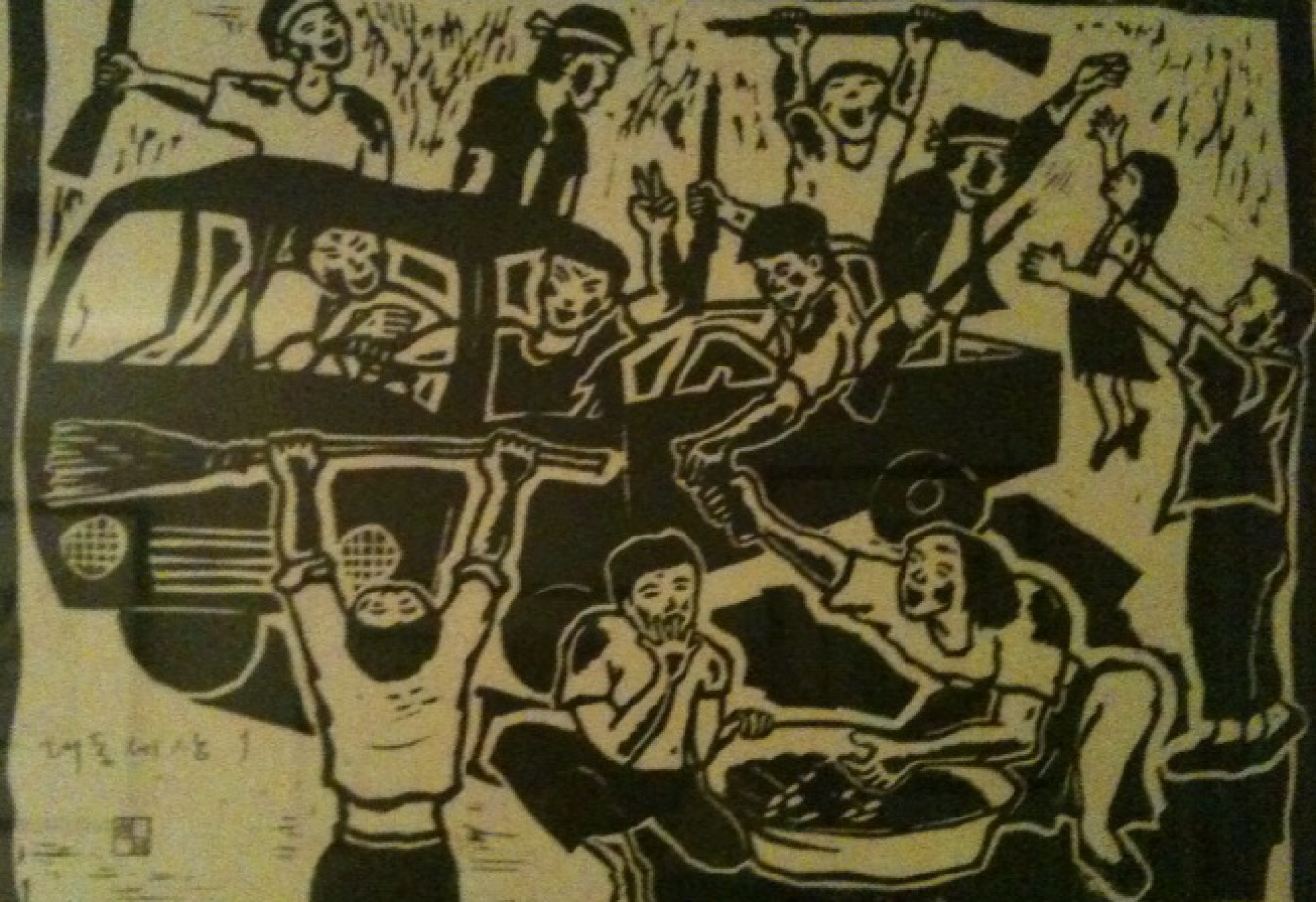In May 2015, I had an experience that was both rare and precious, and also provides insight into contemporary South Korea, US foreign policy, and the power and weakness of the press.
On May 21, I stood in the main square of the old city of Kwangju, South Korea, to receive an honorary citizenship from its mayor, Yoon Jang Hyun, a highly respected and progressive politician. Facing me were about 3,000 people gathered for the city’s annual “citizens day,” which commemorates the city’s brief liberation in 1980 from two brigades of Korean Special Forces sent down to crush a student-led movement for democracy.
I was given the honor for exposing the previously hidden role of the United States in the 1980 coup and its involvement in the decisions by the Korean military to crush the rebellion. When my name came up at the May 21 ceremony, Mayor Yoon handed me a beautiful inlaid plaque expressing the city’s appreciation for my “noble endeavor” to “globalize the spirit of the May 18 Democratic Uprising.”
Accepting that award was a high point of my life that I will never forget, and the culmination of decades of reporting I’d done on Kwangju and the US-Korean strategic relationship. As you can see from this clip on YouTube, I was overwhelmed. I expressed my shame at America’s support for the generals over the Korean people and pledged my “solidarity forever” with the city.
My award was doubly significant because my stories had grown directly out of events that took place on the very square where I stood. There, in the shadow of Kwangju’s old Provincial Capital, the last voices of the city’s rebels had been stilled on May 27, 1980, by a Korean Army division dispatched from the DMZ marking the border with North Korea. They were sent with the approval of the US commander of the US-Korea Joint Command, Gen. John Wickham.
To continue, click here for The Kwangju Uprising and American Hypocrisy: One Reporter’s Quest for Truth and Justice in Korea, The Nation, June 5, 2015.
